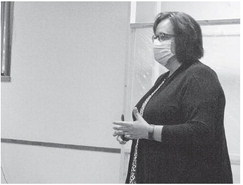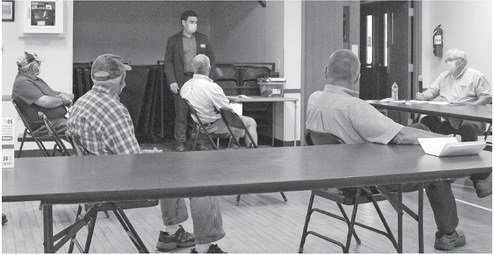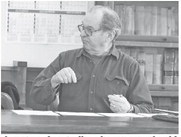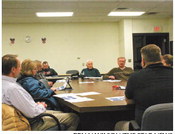Taylor County WTA holds meeting in Jump River


Members of the Taylor County unit of the Wisconsin Towns Association (WTA) gathered in Jump River on August 20 to talk roads, census, COVID-19 and the upcoming election. They also received a report from a representative of congressman Tom Tiffany’s office.
Chairman Lester Lewis reported on additional funding that was released through the Wisconsin Supreme Court overturning a portion of Gov. Tony Ever’s budget vetos. The governor’s action had moved money from transportation to schools and other projects. He said the money was released to existing road programs with the municipalities going through existing channels in order to secure funding for projects.
Dylan Stenz of Rep. Tom Tiffany’s office spoke about the need for a complete census count. He said currently Wisconsin is at a 70.3% response rate, but the state is trailing Minnesota with a 73% response rate.
The census is conducted every 10 years and is used by the federal government to apportion resources and make policy decisions for the coming decade. It will also impact the representation in Congress if other states gain more residents compared to Wisconsin.
Stenz also asked for any feedback that he could pass along to Rep. Tiffany.
Patty Smith objected to Tiffany’s bill to require schools to return in-person in order to receive federal educational funding.
“The educators are the ones who should make the final decision,” she said. “I don’t believe there should be a mandate.” She noted that while in rural areas, the problems aren’t as bad, in larger areas they are having a harder time dealing with the situation. “I feel we should leave it to the experts,” she said.
County clerk Andria Farrand updated those at the meeting on the availability of funds that were assigned to the state and local governments for dealing with COVID-19 related expenses. She explained that each municipality was assigned a set amount of money depending on their size for the construction of things like plastic barriers at polling places and offices and for cleaning supplies. If the money is not spent by the early November deadline it will be returned to the federal government.
“Do you think this will be the norm for elections going forward?” asked member Steve Deml about the barriers that have been used. He noted that his town made temporary ones, but would consider making them more durable if they would be used in the future.
Farrand suggested that if something is going to be built, then it should be more permanent in nature.
“Whatever is reasonable, go ahead and do it,” Lewis said, noting that he would have liked to be able to use what was left on local roads, but that no one had asked him his opinion on it.
The county WTA group will look at holding a hybrid online and in person meeting in the Medford area later this fall. The group has not held regular meetings since before the COVID-19 pandemic hit the state last March.

Dylan Stenz of Rep. Tom Tiffany’s office spoke about the need for a complete census count in order to guarantee the state’s representation in Congress and to secure funding for federal programs.BRIAN WILSON/THE STAR NEWS


